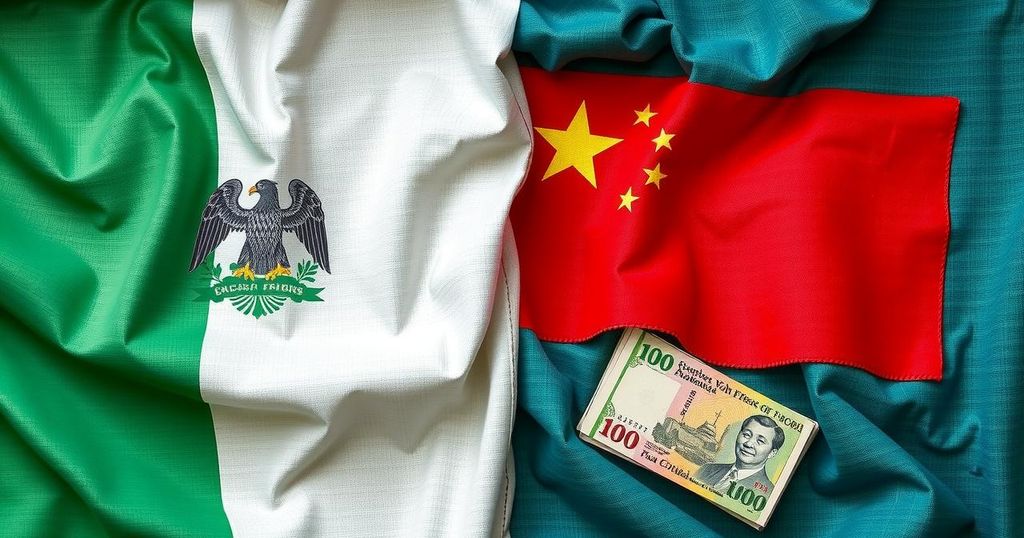The Sea Empowerment Research Centre warns that the renewed currency swap deal between Nigeria and China could threaten Nigeria’s involvement in the Africa Continental Free Trade Area (AfCFTA) by increasing dependence on the Chinese Yuan, limiting trade with other African nations, and furthering competition from Chinese goods. The deal may complicate Nigeria’s currency stability and trade balance, raising concerns about its long-term economic impacts.
A recent statement by the Sea Empowerment Research Centre, led by Mr. Eugene Nweke, cautions that the newly renewed currency swap agreement between Nigeria and China might have adverse implications for Nigeria’s role in the Africa Continental Free Trade Area (AfCFTA). The 15 billion yuan ($2 billion) deal, aimed at enhancing trade and investment, may lead to increased reliance on the Chinese Yuan and diminish Nigeria’s capacity for broader engagement within the AfCFTA framework.
The currency swap deal, according to Nweke, focuses on Nigeria-China trade, potentially limiting economic interactions with other African nations. He posits that this could hinder the AfCFTA’s goal of fostering intra-African trade and economic integration. The agreement could result in heightened competition for Nigerian businesses, as it may facilitate a greater influx of Chinese goods, further jeopardizing the objectives of supporting local industries and promoting African entrepreneurship.
Additionally, Nweke highlighted that the agreement may not adequately tackle existing tariff and non-tariff barriers that impede trade between Nigeria and its continental partners, a vital focus of the AfCFTA. He underscored that the substantial trade deficit between Nigeria and China, which sees Nigeria importing significantly more than it exports, could result in considerable foreign exchange outflows, thereby exerting pressure on Nigeria’s external reserves.
Furthermore, he expressed concerns regarding potential currency fluctuations resulting from the deal, which could adversely affect the value of both the naira and yuan. If the naira experiences depreciation against the yuan, Nigerian exports may become increasingly expensive and less competitive in the Chinese market. Nweke acknowledged the deal’s potential to enhance trade relations, stating that trade between Nigeria and China constitutes nearly 30 percent of Nigeria’s total trade. Ultimately, while the agreement may foster financial cooperation and reduce reliance on the US dollar, its implications on Nigeria’s broader trade strategy within Africa remain a significant concern.
The currency swap agreement between Nigeria and China has been established to enhance bilateral trade and financial cooperation. Amounting to 15 billion yuan ($2 billion), this arrangement is aimed at reducing dependency on third-party currencies and promoting the use of local currencies in transactions between the two countries. However, this initiative raises concerns regarding its repercussions on Nigeria’s participation in the Africa Continental Free Trade Area (AfCFTA), an agreement designed to promote intra-African trade and economic integration among African nations.
In conclusion, the currency swap agreement between Nigeria and China carries significant implications, potentially undermining Nigeria’s active participation in the AfCFTA. While it aims to enhance trade and financial cooperation between the two nations, the focus on bilateral trade may restrict Nigeria’s economic interactions with other African countries, compromising the objectives of promoting intra-African trade and supporting local industries. Policymakers must carefully evaluate these ramifications to ensure that such agreements align with the broader goals of the AfCFTA.
Original Source: punchng.com






